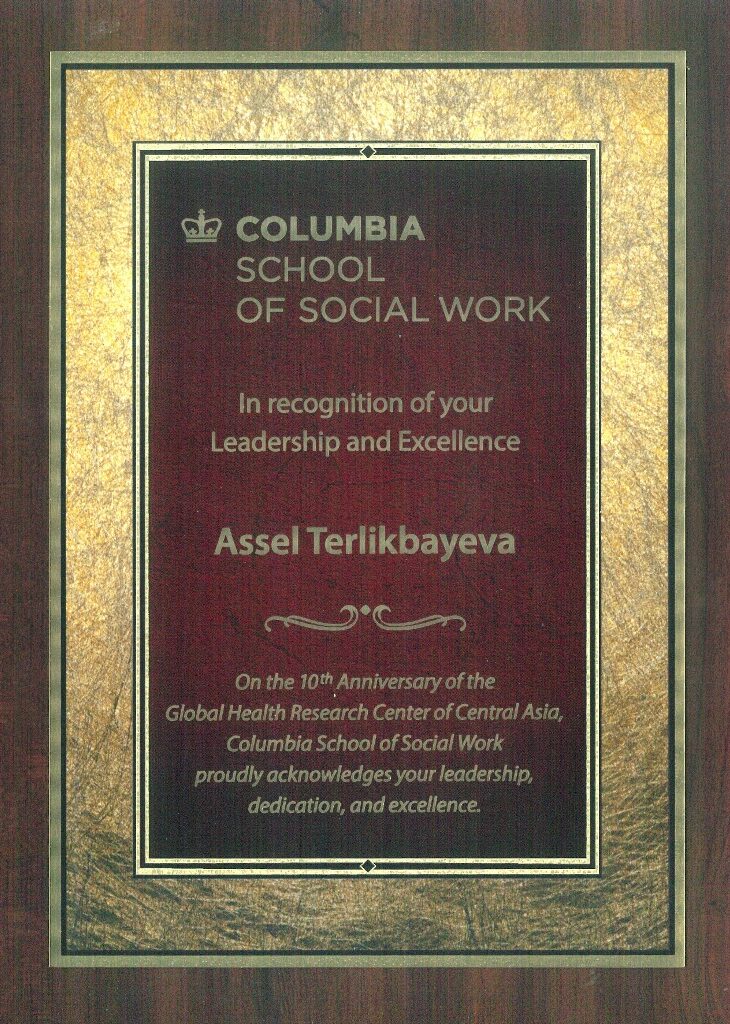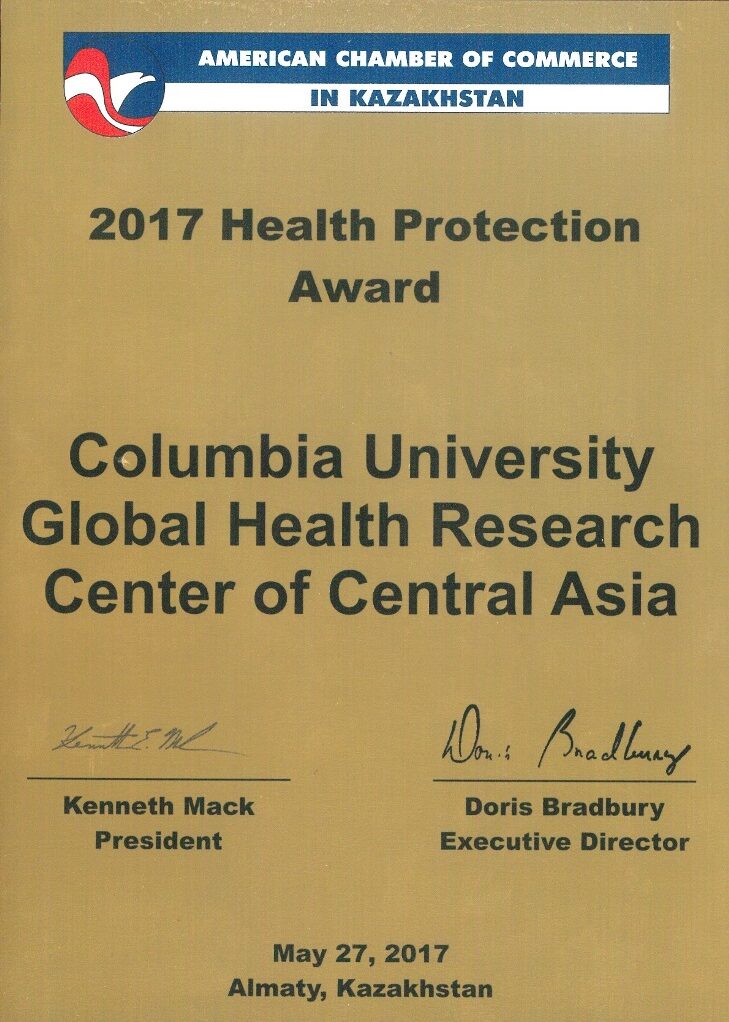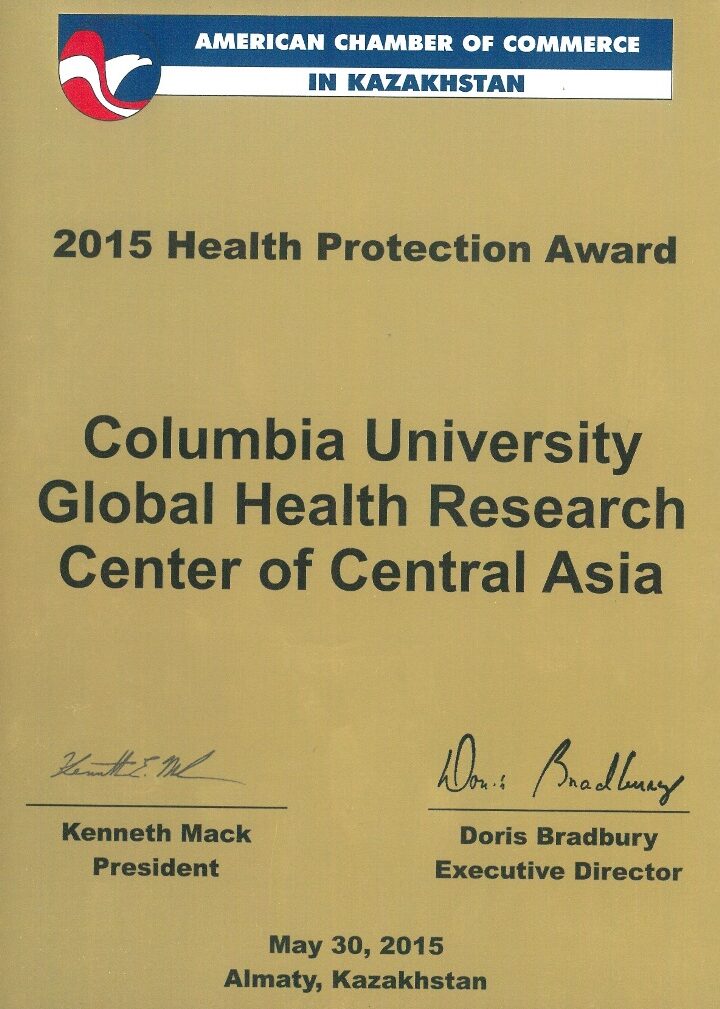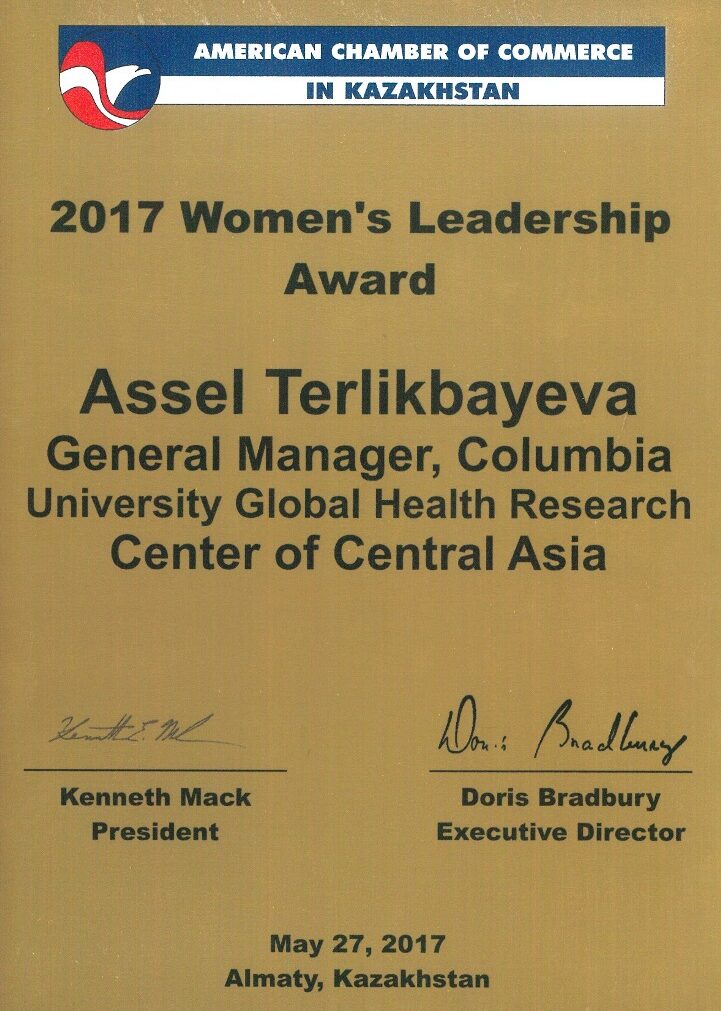The Global Health Research Center of Central Asia (GHRCCA) integrates a multidisciplinary team of faculty, scientists, researchers, and students committed to advancing solutions to health and social issues in Central Asia and the surrounding region. In 2007, Columbia University established GHRCCA, Inc. with a branch office in Almaty, Kazakhstan. In 2010, the work of Wellspring NGO in Ulaanbaatar, Mongolia was incorporated into the scope of the Center. In 2011, a local NGO was established in Bishkek, Kyrgyzstan. The Center also has Regional Representatives in Tajikistan and Uzbekistan.
GHRCCA is designed to develop and scale-up evidence-based, sustainable solutions to address health and social challenges in Central Asia and Mongolia. The Center’s core activities are outcome-driven and designed to improve the health and well-being of vulnerable populations in the region; including drug users and their partners, migrant workers from around the region, sex workers, women, and children. The work of GHRCCA is focused in four core activity areas:
Research: GHRCCA brings together faculty, scientists, researchers, and students from different disciplines and fields from Columbia University and other universities in Central Asia and worldwide to generate scientific and innovative solutions to public health and social challenges.
Education: Using an interdisciplinary approach, GHRCCA aims to advance knowledge, scholarship, and curriculum on health and social challenges in Central Asia and Mongolia. GHRCCA provides educational exchanges and programs for faculty, scientists, researchers, and students from the region and the United States.
Training: GHRCCA provides research trainings and professional development for students, faculty, researchers, and professionals in the fields of public health, social-economic development, and social welfare.
Policy and Dissemination: GHRCCA collaborates with government, international and local non-governmental organizations to implement evidence-based, sustainable solutions into policies, programs, and systems of care.





 Assel Terlikbayeva, MD, MSc in Social Work: Dr. Terlikbayeva is a Regional Director of the Global Health Research Center of Central Asia (GHRCCA) established by Columbia University in 2007 in Almaty, Kazakhstan. GHRCCA is working on advancing evidence-based solutions to health and social issues in Central Asia through research, education, training, policy and dissemination. Dr. Terlikbayeva’s research is focused on behavioral and biomedical interventions for HIV/AIDS, tuberculosis, opioid overdose, substance misuse, gender-based violence and mental health problems among vulnerable women, men and adolescents in Kazakhstan and Central Asia.
Assel Terlikbayeva, MD, MSc in Social Work: Dr. Terlikbayeva is a Regional Director of the Global Health Research Center of Central Asia (GHRCCA) established by Columbia University in 2007 in Almaty, Kazakhstan. GHRCCA is working on advancing evidence-based solutions to health and social issues in Central Asia through research, education, training, policy and dissemination. Dr. Terlikbayeva’s research is focused on behavioral and biomedical interventions for HIV/AIDS, tuberculosis, opioid overdose, substance misuse, gender-based violence and mental health problems among vulnerable women, men and adolescents in Kazakhstan and Central Asia.